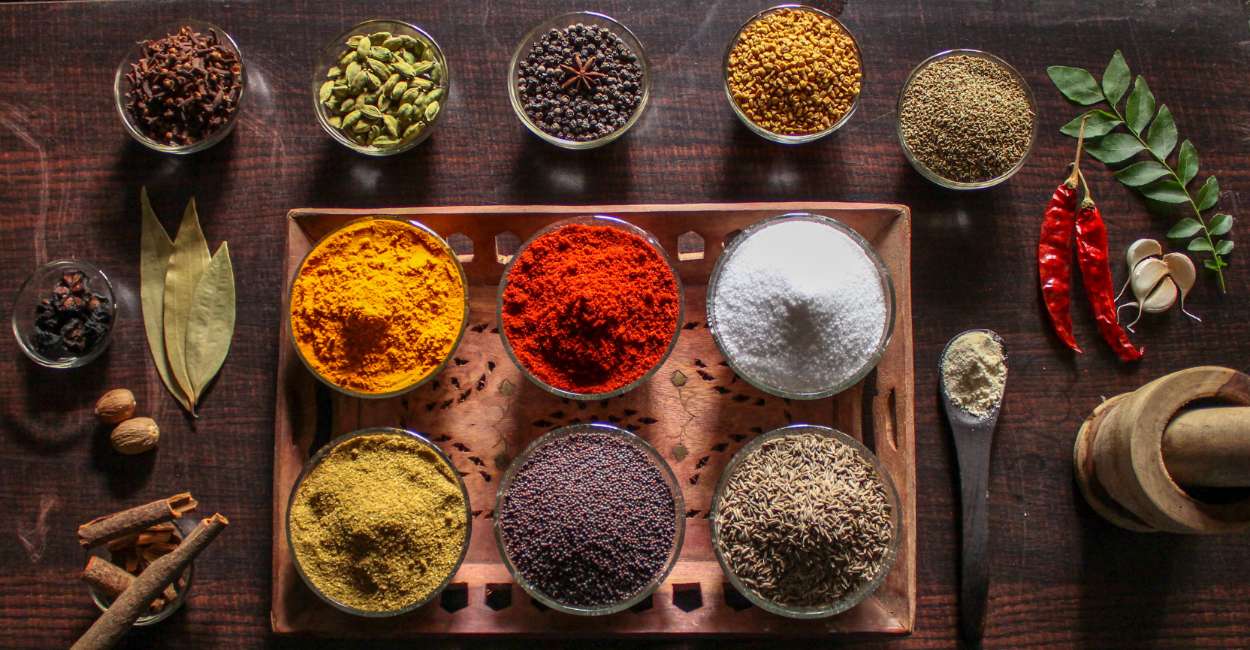
Spices have held a central place in culinary history, not just for adding flavor but for their profound impact on the overall dining experience. Beyond their ability to transform mundane ingredients into delectable dishes, spices contribute a plethora of benefits that make them indispensable in the world of gastronomy. In this exploration, we delve into the multifaceted reasons why spices are vital to the art of cooking.
1. Flavor Enhancement:
At the core, spices are renowned for their ability to enhance and elevate the taste of food. They introduce a symphony of flavors, ranging from sweet and savory to spicy and aromatic, creating a sensory explosion on the palate.
2. Cultural Significance:
Spices are integral to the cultural identity of many cuisines. They are often a reflection of a region’s history, traditions, and local ingredients, adding depth and uniqueness to culinary practices.
3. Aroma and Appetite Stimulation:
The aromatic compounds in spices trigger a sensory experience that extends beyond taste. Aroma plays a crucial role in stimulating appetite, making the dining experience more enjoyable and satisfying.
4. Health Benefits:
Many spices boast medicinal properties and health benefits. For example, turmeric is known for its anti-inflammatory properties, while cinnamon may help regulate blood sugar. The inclusion of spices can contribute to overall well-being.
5. Preservation and Food Safety:
Historically, spices were prized for their ability to preserve food. Their antimicrobial properties helped prevent the growth of bacteria, allowing for the storage and transportation of perishable goods in various climates.
6. Texture and Visual Appeal:
Spices contribute to the overall texture of a dish, providing contrast and depth. They also enhance the visual appeal of food, making it more enticing and inviting to the diner.
7. Versatility in Cooking:
Spices are incredibly versatile, capable of transforming a single ingredient into a myriad of dishes. They lend themselves to various cooking techniques, including roasting, grilling, frying, and simmering, making them essential in diverse culinary applications.
8. Global Culinary Fusion:
The use of spices transcends geographical boundaries, fostering culinary fusion and experimentation. They allow chefs and home cooks alike to explore and blend flavors from different cultures, creating unique and innovative dishes.
9. Economic Significance:
Historically, the spice trade was a driving force in global economies. Spices were once considered luxury commodities, with their rarity and exotic origins influencing trade routes and economic dynamics.
10. Culinary Tradition and Rituals:
Spices often play a role in culinary traditions and rituals. Whether it’s the use of specific spices in celebratory dishes or the incorporation of spices in religious ceremonies, they hold cultural and symbolic significance.
Conclusion:
In essence, the importance of spices in the culinary world extends far beyond their ability to flavor food. They are a testament to the rich tapestry of global cuisine, weaving together taste, culture, and tradition.
From tantalizing the taste buds to contributing to health and preserving culinary heritage, spices stand as culinary alchemists, turning ordinary meals into extraordinary experiences.
FAQs
1. Why are spices considered essential in cooking?
Spices are essential because they add depth, complexity, and variety to dishes, enhancing the overall flavor profile and making the culinary experience more enjoyable.
2. Do all cuisines use spices, or is it specific to certain cultures?
Spices are a universal culinary phenomenon. While the types of spices and blends may vary, virtually all cuisines incorporate spices to some extent, showcasing their global significance.
3. How do spices contribute to the cultural identity of a cuisine?
Spices play a crucial role in defining the unique flavors of a cuisine, reflecting the history, traditions, and local ingredients of a region. They are key components that contribute to the cultural identity of a particular culinary tradition.
4. Are spices only added for taste, or do they have other benefits?
Spices offer a range of benefits beyond taste. They can stimulate appetite through aroma, have medicinal properties, contribute to food preservation, and even add visual appeal to dishes.
5. Can spices be substituted, or are they irreplaceable in recipes?
While some spice substitutions are possible, each spice contributes unique flavors and characteristics. The irreplaceable nature of certain spices often defines the authenticity of a dish.
6. How do spices contribute to the overall health of individuals?
Many spices possess health benefits, such as anti-inflammatory or antioxidant properties. Including spices in your diet can contribute to overall well-being and may have positive effects on various aspects of health.
7. Are there specific spices that have been historically valued for their rarity and origin?
Yes, historically, spices like cinnamon, pepper, and nutmeg were considered luxury commodities due to their rarity and exotic origins. The spice trade played a significant role in shaping global economies.
8. Can spices be used to preserve food, and how does this work?
Absolutely. Spices have antimicrobial properties that help inhibit the growth of bacteria, contributing to the preservation of food. This historical use of spices is rooted in their ability to extend the shelf life of perishable goods.
